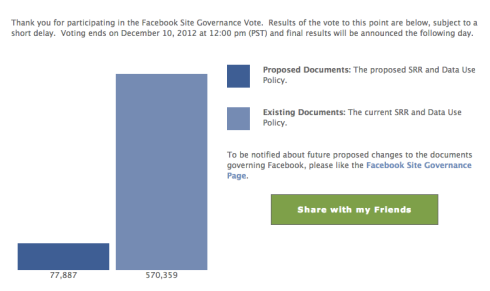
We are all very familiar with advertising in today’s society. Facebook is one of the biggest organization facing the dilemma of introducing advertising. This social network is consist of a number of people and their content whether it is private content, personal content or public content.
Mark Zuckerberg, Facebook’s CEO, has been quoted as saying regarding ads:
“Advertising works most effectively when it’s in line with what people are already trying to do. And people are trying to communicate in a certain way on Facebook – they share information with their friends, they learn about what their friends are doing – so there’s really a whole new opportunity for a new type of advertising model within that.”
Do you think that is a “new” advertising the future or is it more of the same? Anyone who remember those flashing animated banner ads on websites in the early 2000′s? They were annoying and people hate to click on them. If some got a few clicks that is only because advertisers became sneaky enough to turn them into “games” and interactive modules using Flash. However, they are still a failure.
As learnt from Myspace, ads are not good for the user’s experience. Facebook can offer a turn off button to the ads. It is something that has worked for services such as Amazon’s Kindle, Pandora and Spotify. Because they are different and has an entertaining content. There is a very small place for unwanted content on mobile devices.
What is the best for users
Users should be able to do what they do best on Facebook, which is update their status messages, share photos and video, and add new friends. They should be able to play games, talk to their parents, have a video chat and find old high school mates, without interference. All of the ads along the right-hand side of the News Feed, and every other page on Facebook just about, are distracting. Users are being distracted from what Facebook makes its money off of, our information.
The more a user is interrupted when interacting, the less they will use a product, even if it is just by a tiny bit. It is obvious and it is something that Facebook is knows well. Nowadays most of users are addicted to the social networking site they are signed up to, and there are plenty of people to fill gaps when one or two fall off. Over a billion users is an enormous number.
It is clear and it is something that marketers should fear. The worse these ads are, the less targeted they become, the more furious users will be, thus not caring about your brand. For example when I see a BMW Z4 commercial on TV, I will remember that I saw that ad on Facebook first. And I did that ad help them sell a BMW Z4 car to me? Obviously not.
How should advertisers connect
Advertisers should start thinking about new ways to engage people, the way it used to be on Facebook, before its advertising platform was pushed. Facebook could very easily turn on an ad-free model, allowing its users to pay a nominal fee, maybe $10 a month, to move about the site uninhibited –without ads.
This would be awful for the advertisers that have their “campaigns” on cruise control, looking at stupid metrics like clicks and how many people viewed or commented on a status update. While they let “social media gurus” initiate the users that can bring them massive revenue, those who use Facebook the right way to engage with customers and potential customers would benefit from an “ad-free” Facebook. Seeing advertising should be optional, and great advertising does not feel like advertising.
How much money could Facebook make if they were to offer an ad-free option?
If 100 million of its users paid $10 a month for 12 months, Facebook would make $12 billion. How good would that be for Facebook? They reported $1.26 billion in revenue last quarter. These numbers are based solely on 100 million users. Ten dollars a month is not a lot for something that we use daily. You could even give a yearly subscription as a Facebook Gift. This would not all be straight profit though, as they would have to do a full opportunity cost analysis based on what they are making in ad revenue, plus actually refactor an ad-free version of the site.
If Facebook turned this option on, the marketers and brands that are relying on self-serve ads to survive would stumble and fall quickly. Advertising as we know it, especially in the social stage of the Internet, would be turned on its ear. And Facebook would still make billions. Of course, people are already trying similar things but they don’t have the userbase and potential that Facebook has.
Would you pay for an ad-free Facebook? In 2008, some people thought that it would never happen. Maybe most people do not mind ads, but once they are shown more and more in our News Feed, will that change? Since Facebook is concentrated on mobile now, it just might.
Sources: John Battelle’s Search Blog, TechCrunch
















